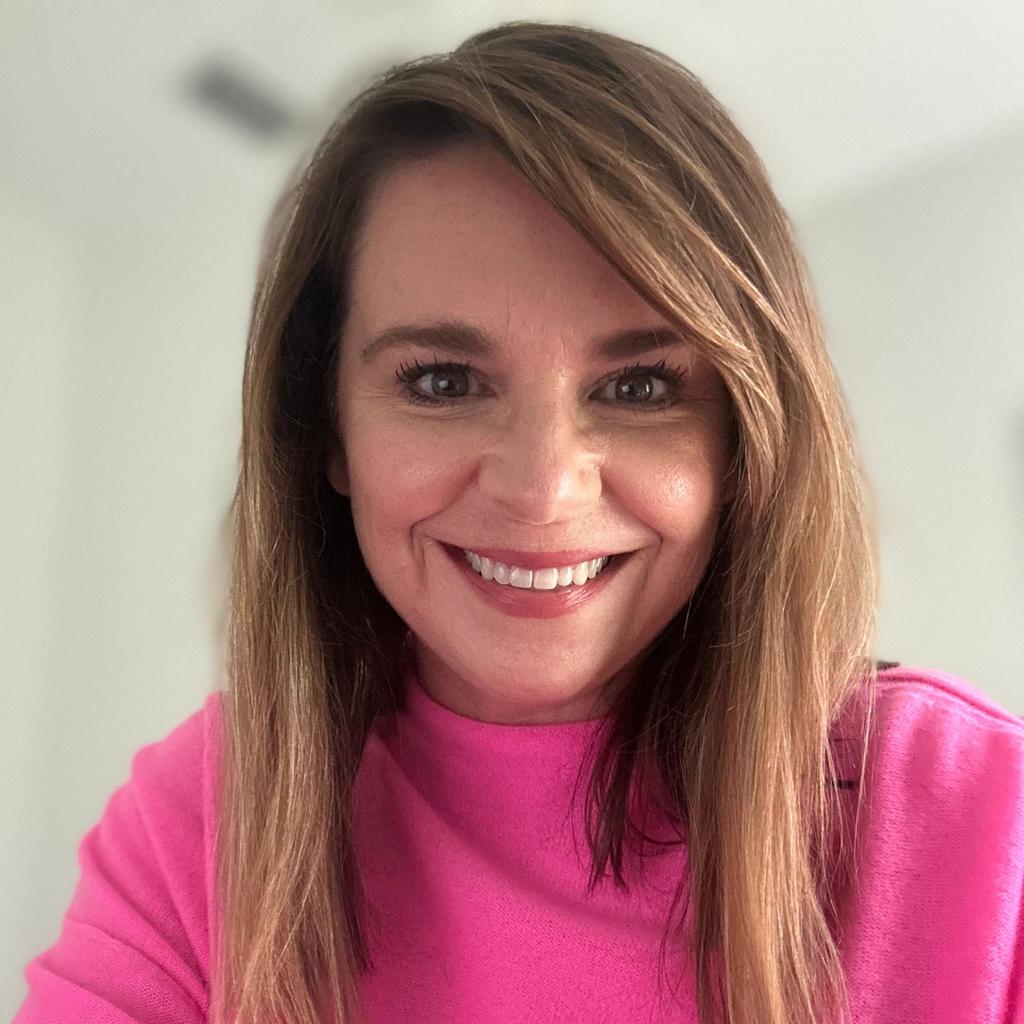Our customers have been hired at: *Foot Note
Congratulations! You’ve written an effective resume, crafted a compelling cover letter, and now you’ve got a job interview for a clinical director job. Well done!
As you prepare for the big interview day, you might wonder about the top clinical director interview questions and how to answer them. You’ve come to the right place.
In this guide, we’ll provide:
- 5 of the most common clinical director interview questions and answers.
- Tips to help you put your best foot forward.
- Resources to help you throughout the interview process.
Table of Contents
Get started with MyPerfectResume today!
- Build a resume on any device
- Pick an ATS-friendly template
- Tailor with AI copy suggestions
Make a resume with MyPerfectResume
Our Resume builder can help you write the perfect resume. Start Now!
Clinical director interview questions and answers
Interview questions for a clinical director position will depend on the job and the company. Still, most potential employers want to know if you have experience, if you’re invested in your career and if you’re a good fit for the company. They also want to know if you have specific soft skills like leadership, relationship-building, communication and decision-making.
Practice makes perfect! Here are five common clinical director interview questions and our sample answers for you to use as inspiration as you prepare your own answers.
1. In this position, you may be faced with a variety of delicate situations that require tact and sensitivity. Can you tell me about a time you've been in a situation like this?
Hiring managers often ask clinical director interview questions like this one because clinical directors have to assist staff with angry patients or families of patients frequently, and they must do so with tact and professionalism.
Example answer
When responding to this clinical director interview question, discuss a time when you used conflict management and interpersonal skillsto diffuse a situation.
For example:
“As you know, health care laws change often and this typically means changes for the entire staff at health clinics. To meet new regulations, our clinic switched to a new software program. This was causing some frustration for our clients. I was generally one of the first people to interact with these clients. I was often able to alleviate some of their frustration through humor, a cheerful attitude and, sometimes, commiseration. As a people person, I was usually able to identify the right tactic to take with our disgruntled clients”
If you do not have work experience as a clinical director, focus on your previous roles, education, and clinical practices and how they prepared you for this job, and talk about your transferable skills, such as leadership and active listening.
2. Part of your responsibilities in this position may include planning events to boost community support. Have you had the chance to plan events within a budget and how did the event turn out?
Interviewers will ask straightforward clinical director interview questions like this to get insight into what you might do to help them achieve the organization’s goals.
Example answer
When responding to this clinical director interview question, think about a time you planned something, even if it was not job-related and tie it into the organization’s needs. Be very specific and highlight at least one accomplishment.
For example:
“I had the opportunity as a volunteer to help put together a summer health expo. We planned to pass out bags of handouts and free samples to boost awareness of the most common summer health issues, such as sunburns and insect bites. My responsibilities included contacting local businesses for donations and financial support. I was also in charge of purchasing water bottles and samples of sunblock, as well as other items that went into the bags. Our event was well-attended and the bags of samples were well-stocked. I built important relationships with contributing businesses that could be important for future events.”
3. The work of a clinical director often requires you to work late and come in early. Extra projects and community events may require you to work overtime. How do you plan to balance your professional and personal schedules to prevent conflicts?
Being a clinical director sometimes requires you to work outside typical work hours and overtime. Hiring managers ask this clinical director interview question to see if you will go the extra mile when needed.
Example answer
Hiring managers want to know that you are passionate about your work, so be enthusiastic when you answer this clinical director interview question. Emphasize your time management skills, flexibility, efficiency and ability to focus.
For example:
“I believe that time management is a crucial skill for success in just about any area of life and especially at work. I plan to organize my work schedule so I don’t waste time in unproductivity. I understand that some aspects of this job will require work outside the typical workday, and I am happy to be available at those times. However, I believe that I am an efficient worker and’ll be able to fulfill most duties within the allotted time.”
4. In this position, personal issues can quickly reach the point where they affect staff members and clients. How have you handled this type of situation in the past?
These clinical director interview questions are meant to gauge your leadership skills, which are critical to any clinical director role. Hiring managers want to know you can read any situation and take control when necessary.
Example answer
Help your interviewers envision you in the job you are interviewing for by using storytelling techniques that emphasize your ability to take the lead and support a team.
For example:
“As part of our strategic-planning meeting, our team had put together a personal development plan that involved quarterly performance reviews. It became clear that one of the team members was having difficulty adjusting to the new plan. I was assigned to act as a peer mentor to this individual.
Together we worked through the personal development plan, discussing each point and identifying some of the goals that the team member had not understood. I was able to clear up some misconceptions and help this team member overcome some professional obstacles. In the end, the individual made improvement and our team was stronger. I value the lessons I learned about team building and empowering others.”
5. In your opinion, what are the essential skills that a successful clinical director needs?
Generally, hiring managers want to know that you are up to date with changing industry policies, that you understand clinical procedures and requirements and that you have a good attitude, so highlight those qualities along with interpersonal, time management and conflict resolution skills when answering this clinical director question.
Example answer
“I believe that this position will require skills such as staying up to date with changing policies, understanding the policies and procedures specific to our area of business and health care, and maintaining a cheerful attitude while working with clients and staff. This job will call for excellent interpersonal skills, time management skills and conflict resolution abilities.”
Clinical director interview tips
- Research the company. Review the company’s website, LinkedIn account, news channels and employee reviews to learn about the company’s goals, needs, products and culture. Take notes and tie your findings into your answers as you prepare for your clinical director interview.
- Use the STAR interview method. The STAR method is a tried-and-true way of answering interview questions clearly and concisely. It will help you to be specific and keep track of your thoughts when answering clinical director interview questions.
- Use keywords from the job description in your answers. You’ve likely studied the job description by the time you reach the interview stage of the job application process. Review it before your interview and align your answers with keywords from the job requirements. For example, talk up your communication skills and knowledge of state and federal employee benefits regulations if they are listed in the job description.
- Practice with others and in front of a mirror. Use these questions and other commonly asked interview questions, such as “Why should we hire you?”, “Describe a time when you needed to cope with a stressful scenario,” or “Why did you choose this career?” to answer interview questions for a clinical director job.
- Be ready to answer behavioral interview questions. Most potential employers will ask at least one behavioral question so don’t let them throw you off guard!
- Prepare questions for your interviewer. Asking questions during your job interview is as important as answering clinical director interview questions. Have three to five questions ready to ask during or after your interview. This is an opportunity to show you’ve researched the company and to ask pertinent questions about the job. Sometimes it helps to have them written down in a notebook so you don’t forget.
- Bring hard copies of your resume and cover letter. Impress your interviewers by bringing in a hard copy of your application documents.
- Write a follow-up letter to each person you interviewed with after your clinical director interview. Doing so keeps you fresh in the interviewer’s mind, displays professionalism and allows you to elaborate on answers from your interview or correct mistakes you might have made. An interview follow-up letter provides the opportunity to thank your interviewers for their time and ask questions that you didn’t get to ask during your interview. Customize your letter for each interviewer to show you were paying attention and to personalize your correspondence. Time is of the essence: send your follow-up letter within 24 hours of your interview.
Didn’t make the cut? Don’t fret! You can always refresh your resume with our Resume Builder and try again. Start with the right resume format, use our resume examples for inspiration and create an effective, ATS-friendly resume in minutes!
5 common clinical director interview questions key takeaways
- Research the company before your interview.
- Practice makes perfect. Review the 5 common clinical director interview questions and answers on this page.
- Use keywords from the job description to craft the answers for your interview questions for a clinical director.
- The STAR method can help you articulate your answers to clinical director interview questions clearly and concisely.
- Follow up.
5 Clinical Director Interview Questions & Answers FAQ
What is the STAR method for job interviews?
The STAR method is a technique to answer interview questions. It is an acronym for “Situation-Task-Action-Result.” It is particularly effective with behavioral interview questions, yet it can be used with any questions that require storytelling to highlight what you bring to the table. This method structures your answers to ensure you’re highlighting job-relevant skills and showcase how you used them.
How does it work? It shows you what to include and the order, giving your answer a beginning, middle and end. In simple terms:
Situation — This was the problem.
Task — This was my role or responsibility when said problem came up.
Action — This is what I did to solve the problem.
Result —This was the successful outcome of my actions.
Using the STAR method in an interview helps hiring managers learn about who you are as a candidate. Your resume tells them you have the skills; your STAR method answers will tell them how effectively you used said skills.
What questions should I ask a hiring manager during a clinical director job interview?
The best interview questions to ask a hiring manager for a clinical director job interview will come naturally during the conversation. We recommend you bring a notebook and a pen to jot them down as they come, although you should always arrive at a job interview with at least three questions prepared.
Some great questions you might ask are:
- What about this position is most important for the goals of the company?
- What would you want me to accomplish in the first six months?
- What is the team workflow process?
- In your opinion, what is the biggest challenge for a person in this role?
- What is the culture like here?
- How would you measure my success for this role?
- Are there professional development opportunities available for someone in this role?
What are the top three things to avoid in a clinical director job interview?
Job interviews are always nerve-wracking, no matter how prepared you are. Because of that, job applicants often spend so much time preparing that they forget what to avoid.
Here are our top three job interview killers:
1. Getting too personal.
It’s a great sign if you develop a strong rapport with your job interviewer. After all, a friendly attitude and a bit of humor go a long way to ease the tension and to show the interview a bit of your personality. Still, there’s a fine-line between being friendly and being too casual, so keep your questions and answers on the professional end of the spectrum.
2. Talking too much.
It’s natural to be nervous during a job interview but be careful that your nerves don’t get the best of you. Take a few moments to process each interview question and think about your answers before responding so you don’t trip over your tongue or ramble, which can ruin the interview. Job interviewers want clear, concise answers, so be straight to the point, provide pertinent details, and avoid tangents. Speak slowly and clearly and never interrupt your interviewer!
3. Focusing on yourself.
It’s vital that you share your professional achievements, skills and goals during a job interview, but to balance the conversation, your answers should focus on how you can use your experiences and skills to the potential employer’s benefit. To do so, use details about the company you gleaned from your research, call up the job requirements, and explain how you would go above and beyond to help the company grow.
How we reviewed this article
Since 2012, we have helped more than 11 million job seekers. We want to make your career journey accessible and manageable through our services and Career Center’s how-to guides and tips. In our commitment to bring you a transparent process, we present our Editorial Process.
Sources
- Rasmussen University. Brooks, Ashley. What is a Clinical Director and How Do You Become One?
- PsychPros. Questions to Ask Clinical Director Candidates During an Interview
Our customers have been hired at:*Foot Note





